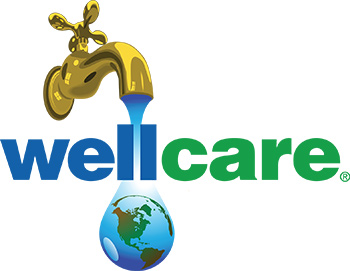|
|
Emergency Response:
(614) 889-7150
ohioema@dps.ohio.gov
ema.ohio.gov
Environmental Protection Agency:
614-644-3020
epa.ohio.gov
Public Health Services:
614-644-7558
Privatewater@odh.ohio.gov
odh.ohio.gov
Water Testing: ohio.gov/watertesting
Emergency Response
https://www.saskatchewan.ca/residents/environment-public-health-and-safety/emergency%20management
Public Health Services
https://www.saskhealthauthority.ca/
Water Testing
https://www.wsask.ca/Water-Info/Ground-Water/Testing-Private-Water-Wells/
List of Licensed Water Well Contractors and Pump Installers
https://www.wsask.ca/Water-Info/Ground-Water/Registered-Drillers/
Emergency Response
https://www.getprepared.gc.ca/cnt/hzd/rgnl/qc-en.aspx
Public Health Services
https://www.quebec.ca/en/health/
Water Testing
https://www.environnement.gouv.qc.ca/eau/potable/depliant/index-en.htm
List of Licensed Water Well Contractors and Pump Installers
https://www.aefq-forage.com/
Emergency Response
https://www.princeedwardisland.ca/en/topic/emergency-preparedness
Public Health Services
https://www.princeedwardisland.ca/en/topic/health
Water Testing
https://www.princeedwardisland.ca/en/information/environment-energy-and-climate-action/testing-drinking-water
List of Licensed Water Well Contractors and Pump Installers
https://www.princeedwardisland.ca/well-contractors-and-well-drillers-licenses
Emergency Response
https://www.ontario.ca/page/emergency-management
Public Health Services
https://www.publichealthontario.ca/
Water Testing
https://www.ontario.ca/page/list-licensed-laboratories
List of Licensed Water Well Contractors and Pump Installers
https://www.ontario.ca/page/find-licenced-well-contractors
Emergency Response
https://beta.novascotia.ca/government/emergency-management-office/about
Public Health Services
https://novascotia.ca/dhw/
Water Testing
https://novascotia.ca/well-water-testing/
List of Licensed Water Well Contractors and Pump Installers
https://novascotia.ca/nse/cms/Search.asp
http://www.nsgwa.ca/drillers.php
http://www.nsgwa.ca/installers.php
Emergency Response
https://www.gov.nl.ca/jps/fes/
Public Health Services
https://www.gov.nl.ca/hcs/
Water Testing
https://publichealthlab.ca/water-testing/
https://www.gov.nl.ca/ecc/waterres/groundwater/
https://www.gov.nl.ca/ecc/waterres/drinkingwater/labs/
List of Licensed Water Well Contractors and Pump Installers
https://www.gov.nl.ca/eccm/waterres/cycle/groundwater/well/well-drilling-license-holders/
Emergency Response
https://www2.gnb.ca/content/gnb/en/departments/emo.html
Public Health Services
https://www2.gnb.ca/content/gnb/en/departments/health.html
Water Testing
https://www2.snb.ca/content/snb/en/services/services_renderer.3877.Water_Well_Testing.html
List of Licensed Water Well Contractors and Pump Installers
http://nbgwa.ca/groundwatertechnicians.htm
Emergency Response
https://www.gov.mb.ca/emo/
Public Health Services
https://www.gov.mb.ca/health/
Water Testing
https://www.gov.mb.ca/health/publichealth/environmentalhealth/water.html
List of Licensed Water Well Contractors and Pump Installers
https://www.gov.mb.ca/well-driller-contractors
Emergency Response
https://www2.gov.bc.ca/gov/content/safety/emergency-preparedness-response-recovery/emergency-management-bc
Public Health Services
https://www2.gov.bc.ca/gov/content/governments/organizational-structure/ministries-organizations/ministries/health
Water Testing
https://www.nrs.gov.bc.ca/qualified-labs
List of Licensed Water Well Contractors and Pump Installers
https://www.bcgwa.org/type/drilling-contractor/
Emergency Response
https://www.alberta.ca/alberta-emergency-management-agency.aspx
Public Health Services
https://www.alberta.ca/health.aspx
Water Testing
https://www.albertahealthservices.ca/eph/Page15233.aspx
List of Licensed Water Well Contractors and Pump Installers
https://awwda.ca/directories/contractors.html
Emergency Response:
800-662-8802
dnrec.delaware.gov
Public Health Services:
302-741-8630 Daytime/After Hours Emergency 302-744-4700
dhss.delaware.gov
Water Testing: delaware.gov/watertesting
Emergency Response:
609-292-5550
nj.gov/dep
Public Health Services:
800-367-6543
nj.gov/health
Water Testing: nj.gov/watertesting
Emergency Response:
(800) 347-0488
(802) 244-8721
vem.vermont.gov
Public Health Services:
(800) 464-4343
(802) 863-7200
healthvermont.gov
Water Testing: healthvermont.gov/lab/drinking-water
Emergency Response:
508-820-2000
mass.gov/mema
Public Health Services:
617-624-6000
mass.gov/dph
Water Testing: mass.gov/watertesting
Emergency Response:
In-state (603) 271-2231
Toll-free (800) 852-3792
nh.gov/safety
Public Health Services:
603-271-1106
dhhs.nh.gov/environmental-health
Water Testing: des.nh.gov/well_testing
Emergency Response:
(860) 685-8531
ct.gov/demhs
Public Health Services:
(860) 509-8000
ct.gov/dph
Water Testing: ct.gov/watertesting
Emergency Response:
(401) 946-9996
riema.ri.gov
Public Health Services:
401-222-5690
health.ri.gov
Water Testing: ri.gov/privatewelltesting
Emergency Response:
207-624-4400 or Toll Free 800-452-8735 In-State Only
maine.gov/mema
Public Health Services:
866-292-3474 (toll-free in Maine)
207-287-4311
Maine Relay 711
maine.gov/dhhs
Water Testing: maine.gov/watertesting
Emergency Response:
(518) 292-2200
dhses.ny.gov/oem
Public Health Services:
866-881-2809
health.ny.gov/environmental
Water Testing: wadsworth.org/watertesting
Emergency Response:
1-800-541-2050
pa.gov
DEP Regional Offices:
North Central – 570-327-3636
Northeast – 570-826-2511
Northwest – 814-332-6945
South Central – 717-705-4700
Southeast – 484-250-5900
Southwest – 412-442-4000
dep.pa.gov
Public Health Services:
717-787-3350
env.health.concern@pa.gov
health.pa.gov
Water Testing: www.pa.gov/water-testing
Emergency Response:
866-633-4686
mde.state.md.us
Public Health Services:
866-703-3266
health.maryland.gov
Water Testing: mde.state.md.us/watertesting
Emergency Response:
304-558-5380 (24 Hours)
emd.wv.gov
Public Health Services:
800-368-4358-4 (In-state Only)
oehs.wvdhhr.org
Water Testing: dhhr.wv.gov/labs
Emergency Response:
(804) 267-7600
lemd.vdem.virginia.gov
Public Health Services:
(804) 864-7470
vdh.virginia.gov
Water Testing: dgs.state.va.us/watertesting
List of Licensed Water Well Contractors and Pump Installers
Additional List of Licensed Well Contractors
Emergency Response:
919-710-8885
ncdps.gov/ncem
Public Health Services:
919-707-5854
ncpublichealth.com
Water Testing: deq.nc.gov/watertesting
Emergency Response:
803-737-8500
scemd.org
Public Health Services:
803-898-3432
dph.sc.gov
Water Testing: des.sc.gov/testing-services
Emergency Response:
800-879-4362
gema.ga.gov
Public Health Services:
404-657-2700
dph.georgia.gov
Water Testing: georgia.gov/watertesting
Emergency Response:
601-933-6362
24-hour Emergency Line 800-222-6362
msema.org
Public Health Services:
MSDH Office of Environmental Health
(601) 576-7690
msdh.ms.gov
MDEQ
(601) 961-5171
Complaint Hotline Toll-Free Number: 888-786-0661
deq.state.ms.us
Water Testing: ms.gov/watertesting
Emergency Response:
(615) 741-0001
tn.gov/tema
Public Health Services:
615-741-7247
Toll-Free 800-404-3006
tn.gov/health
Water Testing: tn.gov/watertesting
Emergency Response:
800-255-2587
kyem.ky.gov
Public Health Services:
502-564-4856
chfs.ky.gov
Water Testing: ky.gov/watertesting
Emergency Response:
317-232-2222
in.gov/dhs
Public Health Services:
317- 234-7477
in.gov/idem
Water Testing: in.gov/watertesting
Emergency Response:
517-335-8150
michigan.gov
Public Health Services:
michigan.gov/mdhhs
Water Testing: mi.gov/watertesting
Emergency Response:
24-hour Response 217-782-7860
illinois.gov/iema
Public Health Services:
217-782-5830
dph.illinois.gov
Water Testing: illinois.gov/labs
List of Licensed Water Well Contractors and Pump Installers
Additional List of Licensed Well Contractors
Emergency Response:
888-936-7463
dnr.wi.gov/emergency
Public Health Services:
608-266-1865
dhs.wisconsin.gov
Water Testing: wi.gov/PrivateWellTest
Emergency Response:
225-925-7500
gohsep.la.gov
Public Health Services:
888-293-7020
dhh.louisiana.gov
Water Testing: louisiana.gov/watertesting
Emergency Response:
501-683-6700
adem.arkansas.gov
Public Health Services:
501-661-2171
healthy.arkansas.gov
Water Testing: healthy.arkansas.gov/laboratory
Emergency Response:
573-368-2165
800-361-4827
Spill Response 573-634-2436
dnr.mo.gov
Public Health Services:
573-751-6102
866-628-9891
health.mo.gov
Water Testing:
dnr.mo.gov/watertesting/micro
dnr.mo.gov/watertesting/chem
List of Licensed Water Well Contractors and Pump Installers:
Main Website
Direct Link
Emergency Response:
515-725-8200
iowadnr.gov
Public Health Services:
800-972-2017
hhs.iowa.gov
Water Testing: iowadnr.gov/private-well-program
Emergency Response:
651-201-7400
mn.gov/hsem
Public Health Services:
651-201-4600 or 800-383-9808
health.state.mn.us
Water Testing: health.state.mn.us/watertesting
Emergency Response:
888-777-3186
tceq.texas.gov
Public Health Services:
512-776-7770
dshs.texas.gov
Water Testing: texas.gov/watertesting
Emergency Response:
405-702-6100
deq.ok.gov/ecls
Public Health Services:
(405) 426-8000
Toll-free 800-522-0203
oklahoma.gov/health
Local Health Departments:
ok.gov
Water Testing: deq.state.gov/watertesting
Emergency Response:
24-hour Response 785-291-3333/Daytime 785-646-2000
kansastag.gov/KDEM
Public Health Services:
785-291-3092
kdhe.ks.gov
Water Testing: kdhe.ks.gov/laboratory-services
Emergency Response:
402-471-7421
nema.ne.gov
Public Health Services:
(402) 471-3121
dhhs.ne.gov
Water Testing: ext.unl.edu/watertesting or dhhs.ne.gov/watertesting
Emergency Response:
(605) 773-3231
dps.sd.gov/emergency-management
Public Health Services:
605-773-3368/ In-State 800-738-2301
doh.sd.gov
Water Testing: doh.sd.gov/lab
Emergency Response:
701-328-8100/Toll Free 800-773-3259
des.nd.gov
Public Health Services:
DHHS
(701) 328-2310
hhs.nd.gov/health
DEQ
701-328-5225
deq.nd.gov/WQ
Water Testing: ndhealth.gov/watertesting
Emergency Response:
808-733-4300
dod.hawaii.gov
Public Health Services:
808-586-4400
health.hawaii.gov
Water Testing: hawaii.gov/watertesting
Emergency Response:
907-428-7000
ready.alaska.gov
Public Health Services:
907-269-7644
dec.alaska.gov
Water Testing: dec.alaska.gov/lab
Emergency Response:
505-476-9600
nmdhsem.org
Public Health Services:
DOH
nmhealth.org
Environment Department
505-827-2855
1-800-219-6157
Environmental Emergencies 505-827-9329 (24 hours)
env.nm.gov
Water Testing: env.nm.gov/testing
Emergency Response:
877-518-5608
colorado.gov
Public Health Services:
303-692-3500
colorado.gov
Water Testing: colorado.gov/watertesting
List of Licensed Water Well Contractors and Pump Installers
Additional List of Licensed Water Well Contractors
Emergency Response:
602-771-2300
800-234-5677
azdeq.gov
Public Health Services:
602-364-3118
azdhs.gov
Water Testing: azdhs.gov/watertesting
Emergency Response:
(801) 538-3400
dem.utah.gov
Public Health Services:
(801) 538-6191
epi.utah.gov
Water Testing: utah.gov/watertesting
Emergency Response:
(307) 777-4900
wyo.gov
Public Health Services:
(307) 777-7656
(866) 571-0944
health.wyo.gov
307-777-7937
deq.wyoming.gov
Water Testing: health.wyo.gov/watertesting
Emergency Response:
dem.nv.gov
Public Health Services:
775-684-4200
dpbh.nv.gov/env_health
Water Testing: nv.gov/watertesting
Emergency Response:
(208) 258-6500
ioem.idaho.gov
Public Health Services:
(208) 334-6996
doh.idaho.gov
Water Testing:
Info and resources
healthandwelfare.idaho.gov/drinking-water
healthandwelfare.idaho.gov/drinking-water-testing-and-certification
Private Well Owner Drinking Water Analysis Test Request Form
Emergency Response:
406-324-4777
des.mt.gov
Public Health Services:
DPHHS, Environmental Health
(406) 444-5622
dphhs.mt.gov/environmentalhealth
DEQ
(406) 444-5546
deq.mt.gov/Water
Water Testing: mt.gov/watertesting
Emergency Response:
503-378-2911
oregon.gov/oem
Public Health Services:
971-673-0440
oregon.gov
Water Testing:
General oregon.gov/labs
Real Estate Transactions oregon.gov/RET
Emergency Response:
800-258-5990
wa.gov/emergency-management
Public Health Services:
360-236-4501
800-525-0127
doh.wa.gov/HealthyHome
Water Testing: ecy.wa.gov/watertesting
List of Licensed Water Well Contractors and Pump Installers
Additional List of Licensed Water Well Contractors
Emergency Response:
916-894-5209
caloes.ca.gov
Public Health Services:
916-449-5577
waterboards.ca.gov
Water Testing: swrcb.ca.gov/water_testing
Emergency Response:
EMERGENCIES ONLY 800-320-0519/Non-Emergencies 850-413-9900
floridadisaster.org
Public Health Services:
850-245-4240
floridahealth.gov
Water Testing: floridahealth.gov/private-well-testing
Emergency Response:
205-280-2200
800-843-0699
ema.alabama.gov
Public Health Services:
800-252-1818
alabamapublichealth.gov
Water Testing: https://www.aces.edu/private-well-program/where-to-get-your-well-water-tested

